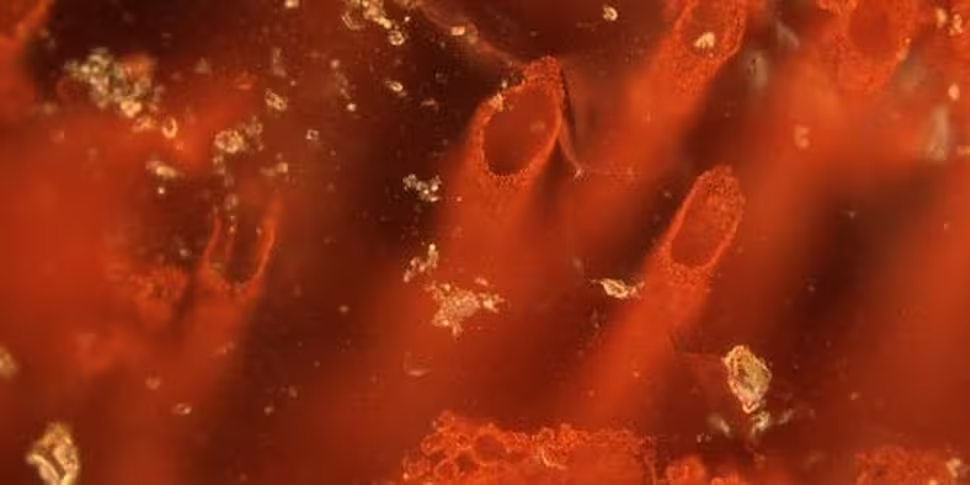Scientists have uncovered what they believe may be the world’s oldest fossils suggesting life on Earth began billions of years ago when the planet was still in its infancy.
Remains of microorganisms at least 3.77 billion years old have been found encased in quartz layers in northern Quebec's Nuvvuagittuq Supracrustal Belt, in Canada.
The research team – made up of international scientists led by the University of London – believe the fossils could date as far back as 4.3 billion years.
The study is published in the journal Nature.
The research suggests the fossils could be older than the 3.7 billion years assigned to rock features found in Greenland, which were proposed to be fossils in August last year.
If so they would provide direct evidence of the oldest known life forms on Earth.
The research suggests that life appeared on Earth extremely quickly – in a relative sense – following the Late Heavy Bombardment (LHB) – believed to have occurred between 4.1 and 3.8 billion years ago.
During the LHB the planets in our solar system underwent a huge bombardment from wayward asteroids – something that would likely have sterilised any life on the earth’s surface.
The emergence of life
UCL's Matthew Dodd said the newly discovered fossils - half the width of a human hair and up to half a millimetre in length - lived near a vent in the seafloor where water was heated by a volcano.
The fossils take the form of red tubes and filaments made by ocean-living bacteria that fed on iron.
“Our discovery supports the idea that life emerged from hot, seafloor vents shortly after planet Earth formed,” said Mr Dodd. “This speedy appearance of life on Earth fits with other evidence of recently discovered 3,700 million year old sedimentary mounds that were shaped by microorganisms.”

Image: Matthew Dodd UCL
"These discoveries demonstrate life developed on Earth at a time when Mars and Earth had liquid water at their surfaces, posing exciting questions for extra-terrestrial life.
"If life happened so quickly on Earth, then could we expect it to be a simple process that could start on other planets?
"We could expect to find evidence for past life on Mars four billion years ago."
He warned however that it still may be true that Earth was "just a special case."
Teeming with life
Astronomy Ireland editor David Moore cautioned that it is unlikely that the fossils could date to before the LHB but said if they did - it may suggest that single-cellular life formed on Earth not once but twice.
“We do think there are millions of planets with the right conditions for life throughout our own galaxy and we recently ran a story to say that we now think there are two trillion galaxies,” he said.
He said many scientists "think but can’t prove for sure" that given the right conditions simple life could form relatively easily and "in pretty quick order."
“We are still looking to see if it happened on Mars, the moons of Jupiter, the moons of Saturn and if it happened twice on Earth and several other places in one Solar system [...] that would almost certainly mean the universe is teeming with life," he said.
He cautioned that any evidence of microbial life would not provide answers to the question of whether there is intelligent life outside of Earth.
“Whether we will ever end up communicating with other intelligent civilizations; that is actually almost a completely different question,” he said.
“It is dramatically different to get from ‘can life get started’ to ‘can it become intelligent.’”
Scientific scepticism
The key question facing this latest discovery is how certain the researchers can be that the rock features were produced by living organisms – with some scientists sceptical about the latest discovery.
Martin J Van Kranendonk, of the University of New South Wales in Australia - who reported last year’s Greenland findings - said that the UCL findings are "not fossils" claiming the UCL paper’s evidence for a biological origin falls short.
NASA geologist Abigail Allwood said the study was "one of the most detailed cases yet made" for evidence of life in rocks older than 3.5 billion years but added that it was "an extraordinary claim to make - and you do need extraordinary evidence."
"I think the jury is still out a little bit," she said.
The UCL scientists have already systematically examined ways the tubes and filaments could have been made through non-biological methods – but found all of the possibilities unlikely.
Study lead Dr Dominic Papineau said the evidence supports the idea that the structures were the product of the process of decaying organic matter.
“The fact we unearthed them from one of the oldest known rock formations, suggests we’ve found direct evidence of one of Earth’s oldest life forms,” he said. “This discovery helps us piece together the history of our planet and the remarkable life on it, and will help to identify traces of life elsewhere in the universe.”









